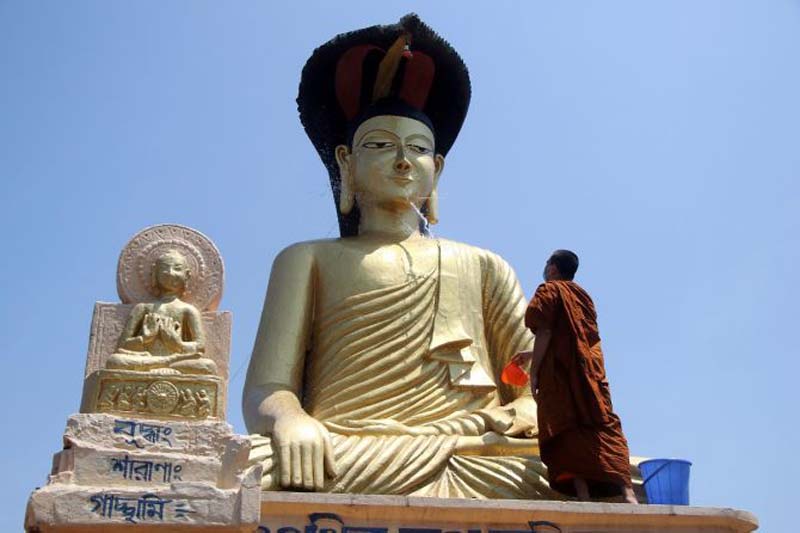KARACHI, Aug 5: A unique antique object, termed “Buddha pendant”, has been found very close to the archaeological site of Mohenjo-daro in Pakistan’s Sindh province after the area was lashed by heavy rains, according to a media report on Friday.
Believed to be of archaeological importance, the object was found in the Dikshit South area of Mohenjo-daro after a downpour on August 3, the Dawn newspaper reported.
Irshad Ahmed Solangi, a private tour guide and a resident of Dhand village located very close to the archaeological site, said on Thursday that he had found the object in a ditch that was developed during the recent rainfall on Wednesday.
After he discovered the object, he immediately reported it to site officer and conservator Naveed Sangah, the report said.
Ali Haider Gadhi, a senior conservationist at the archaeology department, reaffirmed that heavy rainfall led to the surfacing of the antique object.
After examining the object, Mohan Lal, a former chief engineer of the department of archaeology and museums and currently working as project director of the Endowment Fund Trust (EFT) identified it as “Buddha pendant” and suggested it to be a “unique antiquity.”
“This rare discovery demands further studies to find out the missing history links,” the report quoted him as saying.
An unnamed senior official at the culture department while describing the object said that it appeared like a pendant often worn around the neck by people.
He said further examination of the discovery will reveal more insights into the make and age of the object, and will help in knowing its historic and prehistoric value.
“We have approached an expert working in the culture department to know about the object’s make and age,” he said.
Mohenjo-daro is an archaeological heritage site discovered by Indian archaeologist R D Banerji in 1922. It is located on the east of the Indus River in the semi-arid region of Sindh province. Extending over 618 acres, it is the largest and best-preserved urban centre of the Indus Civilisation (2600-1900 BC). (PTI)


